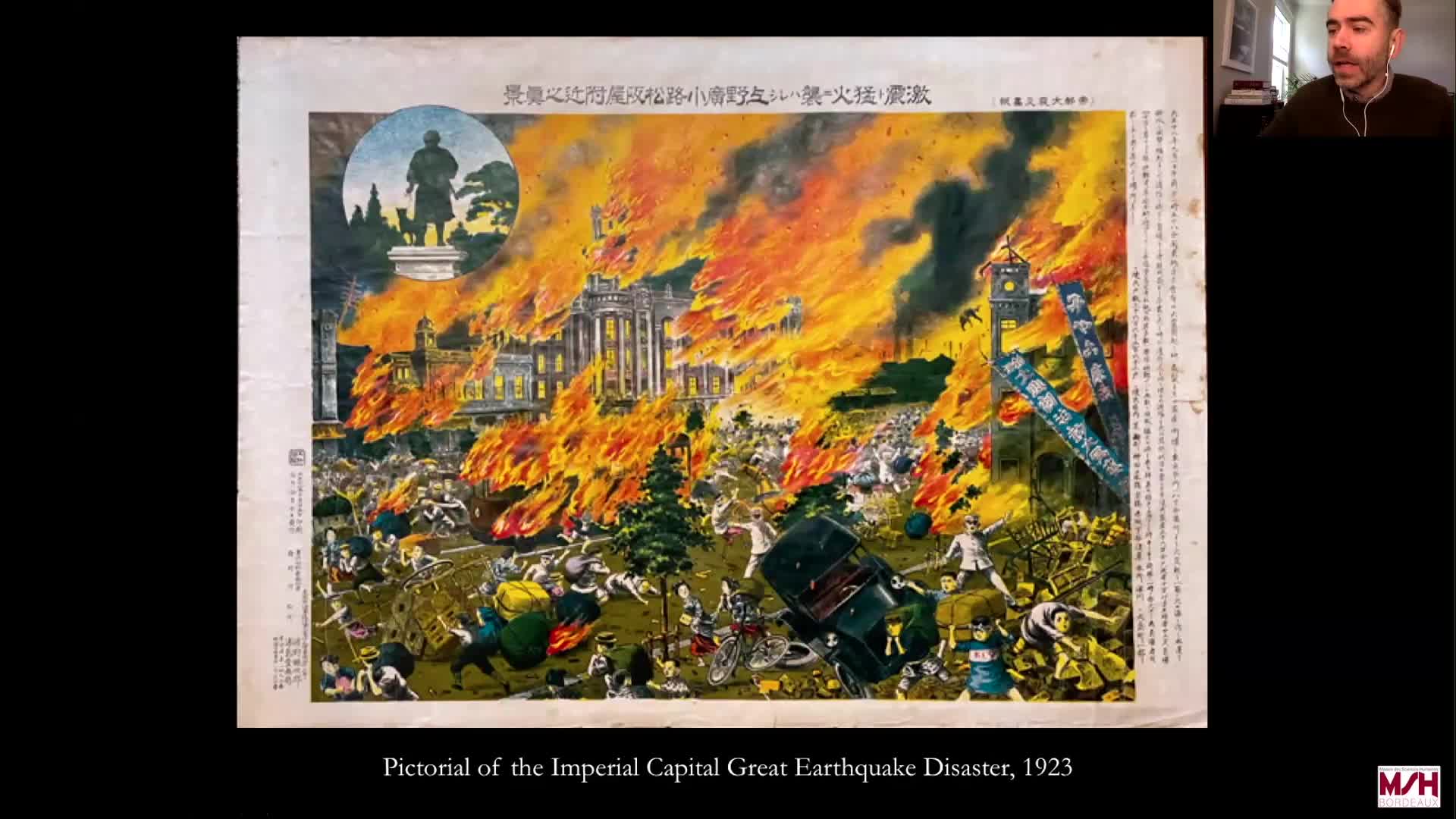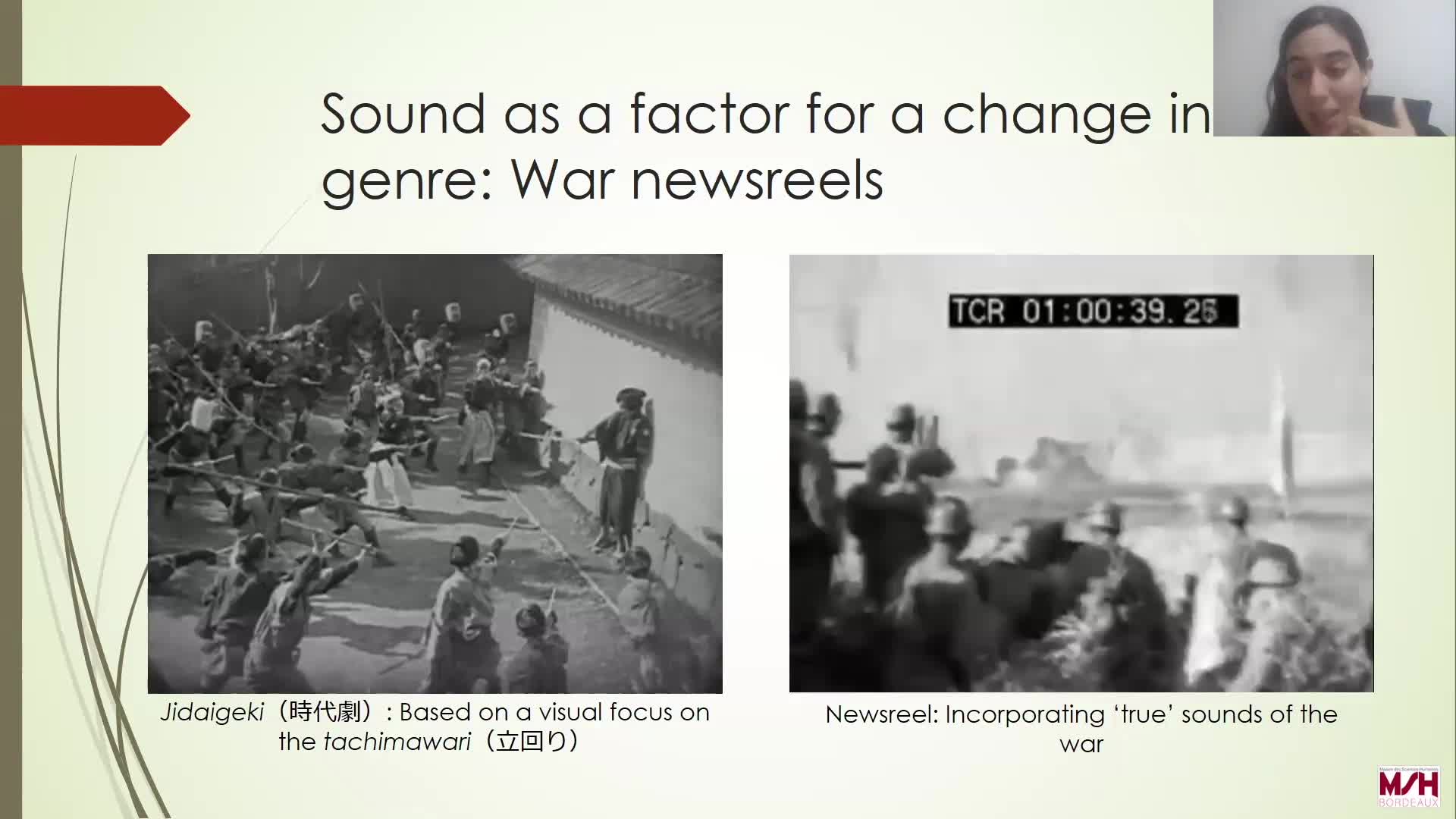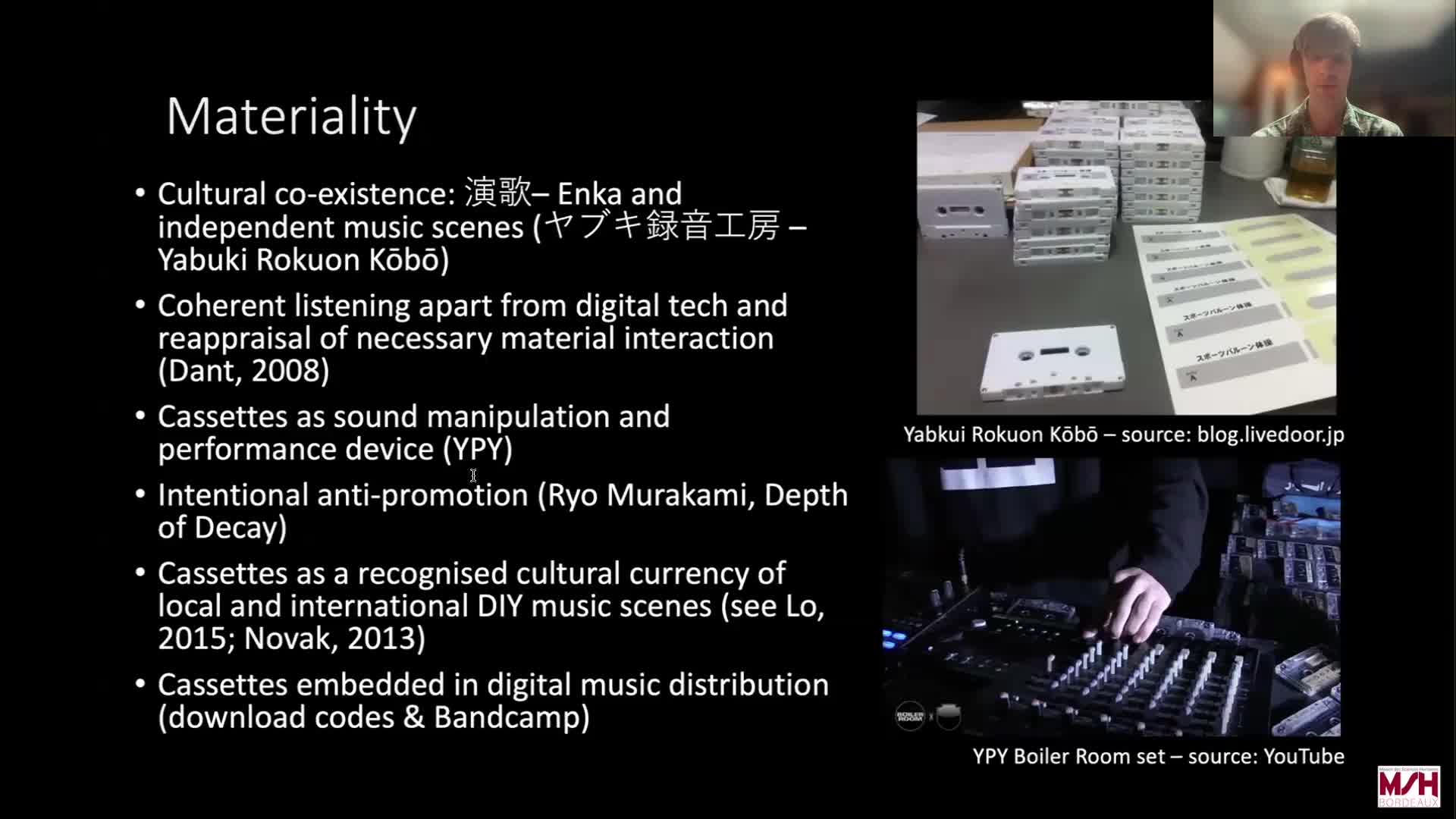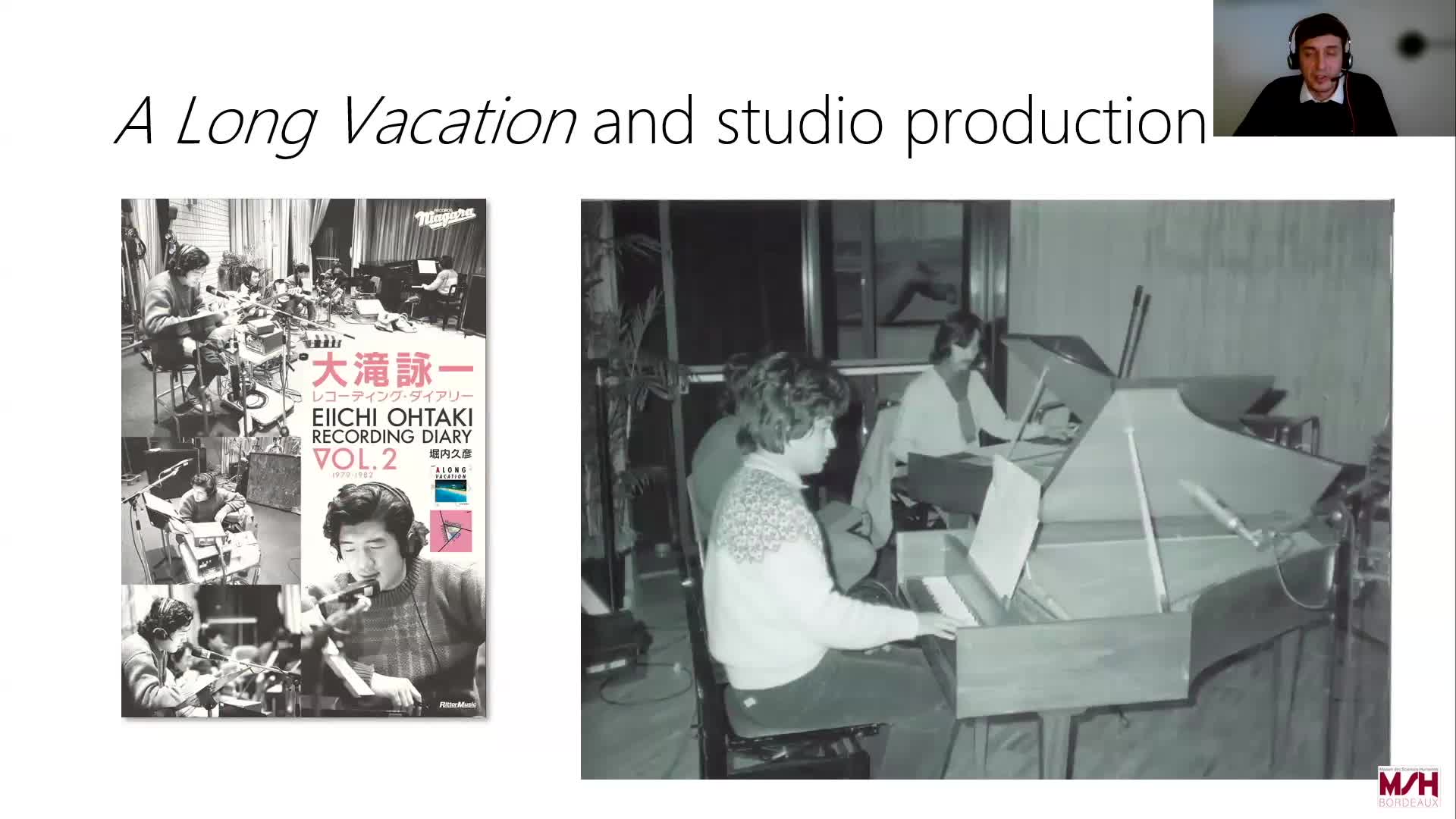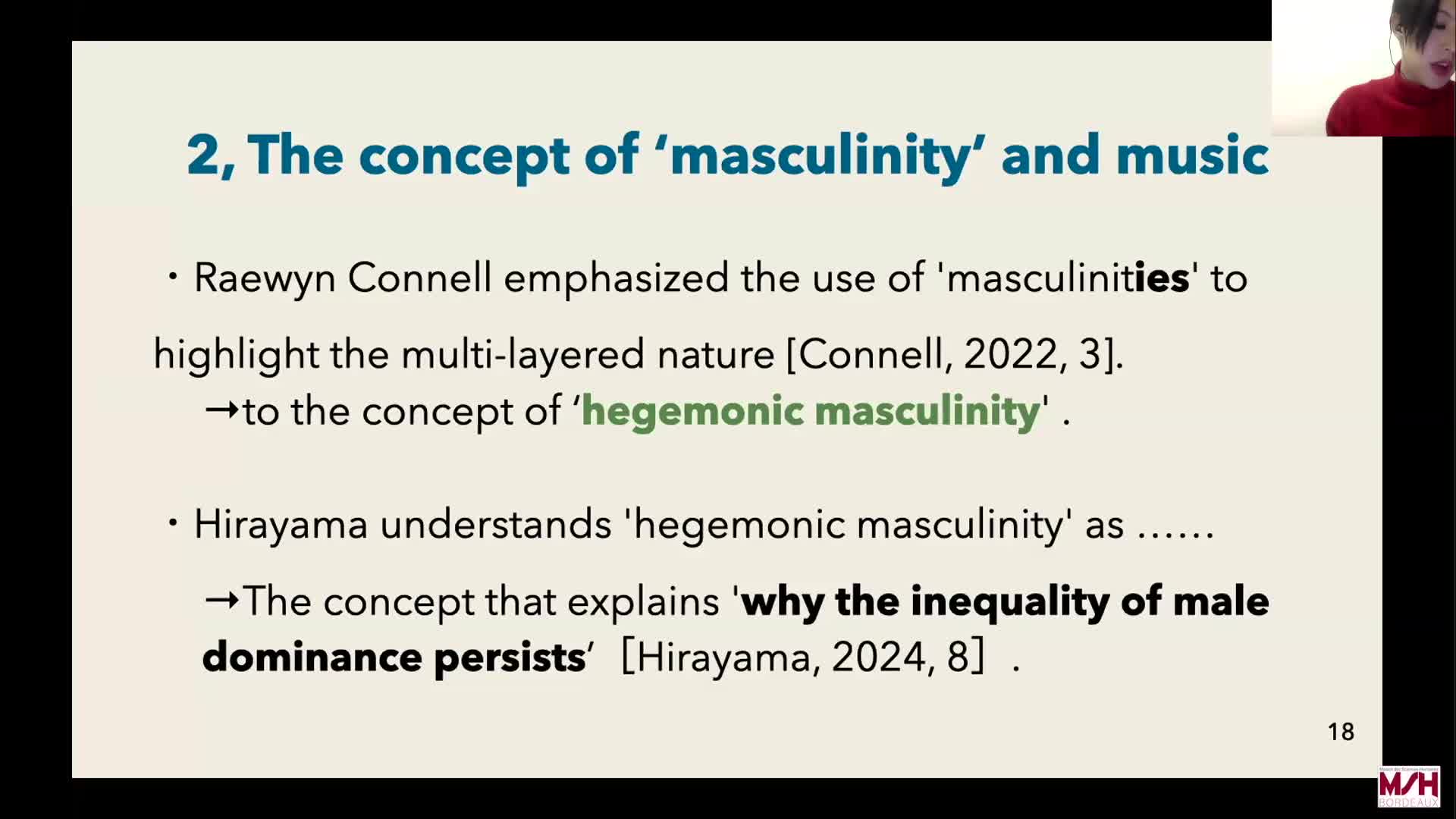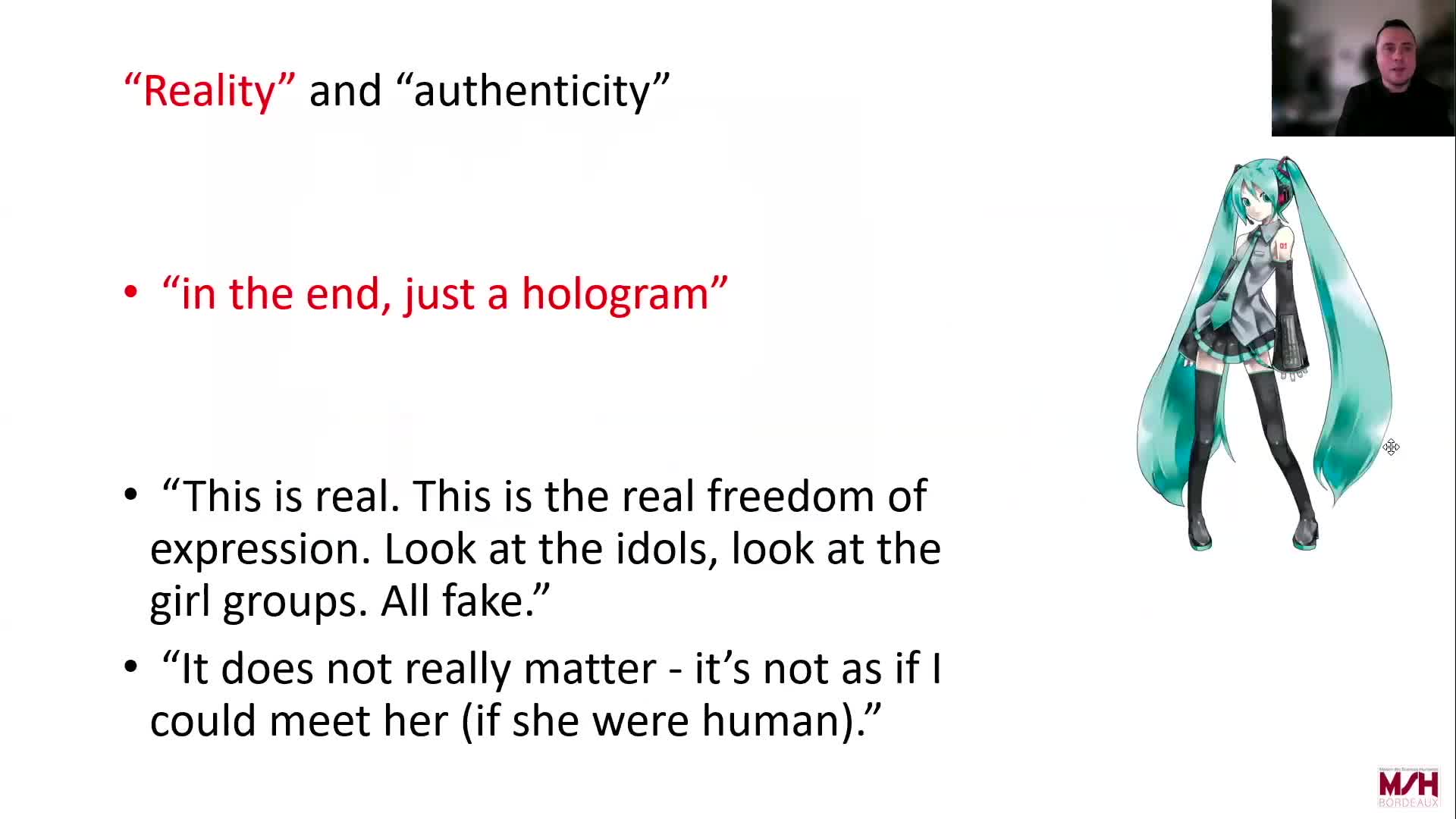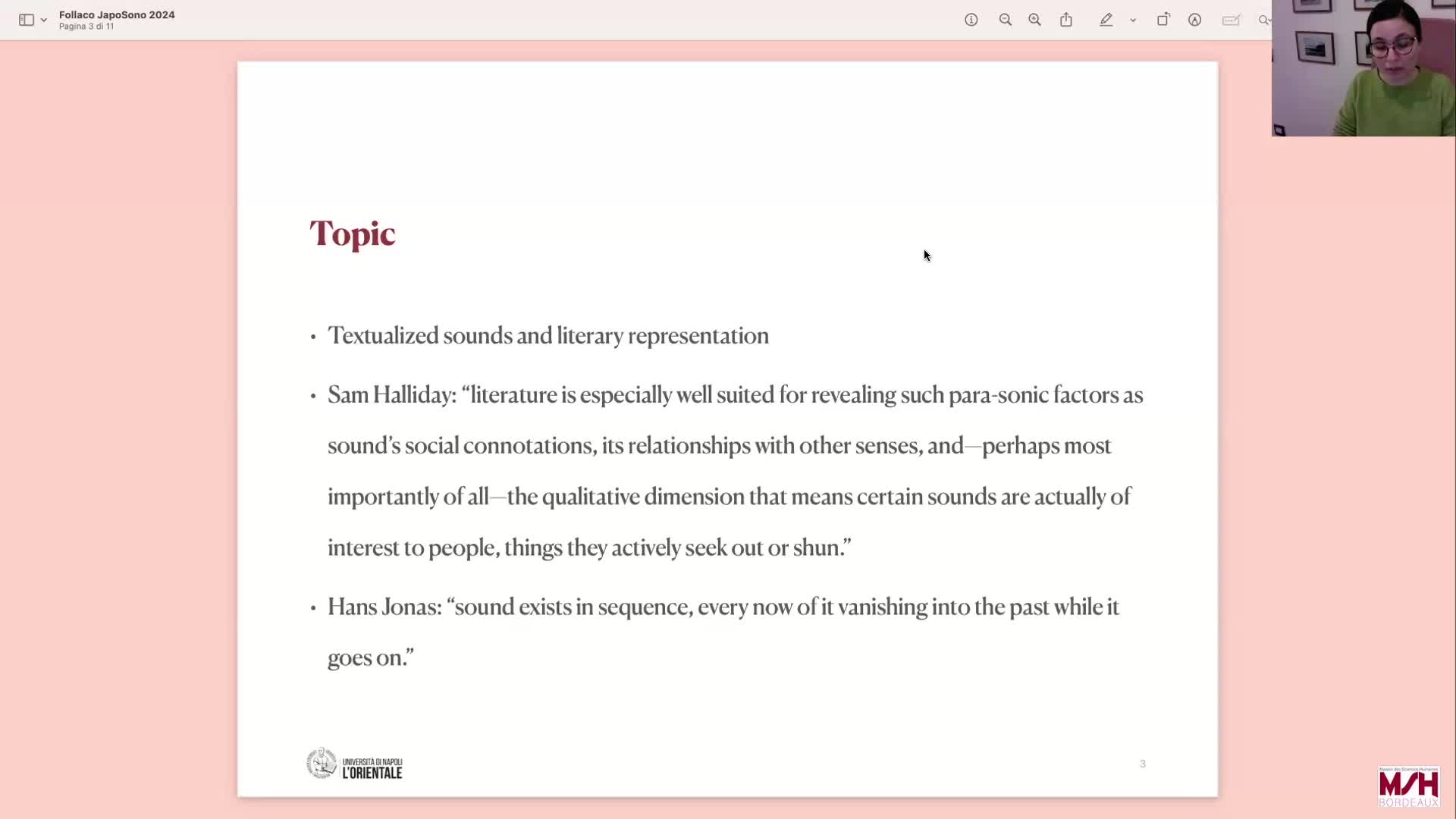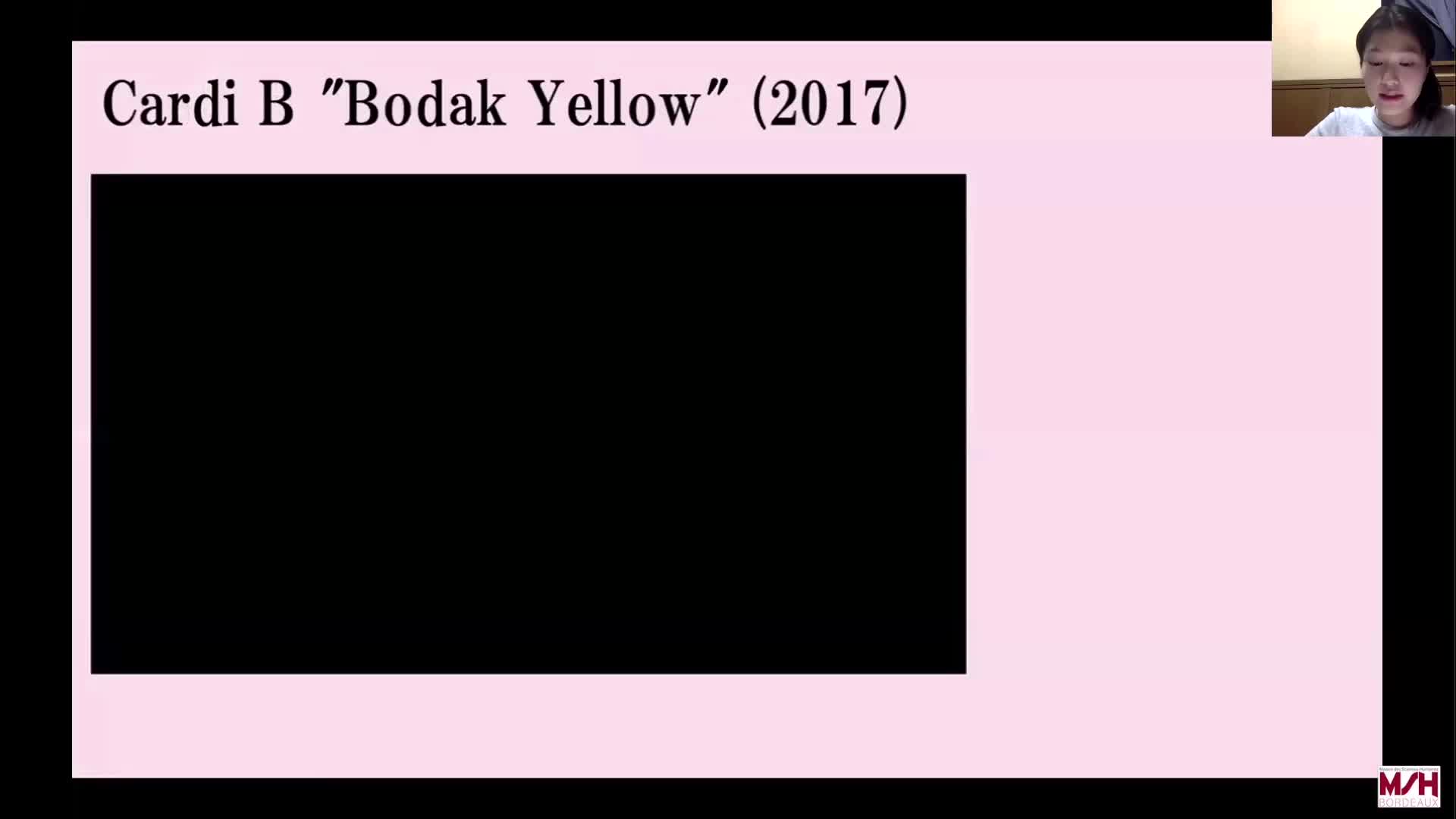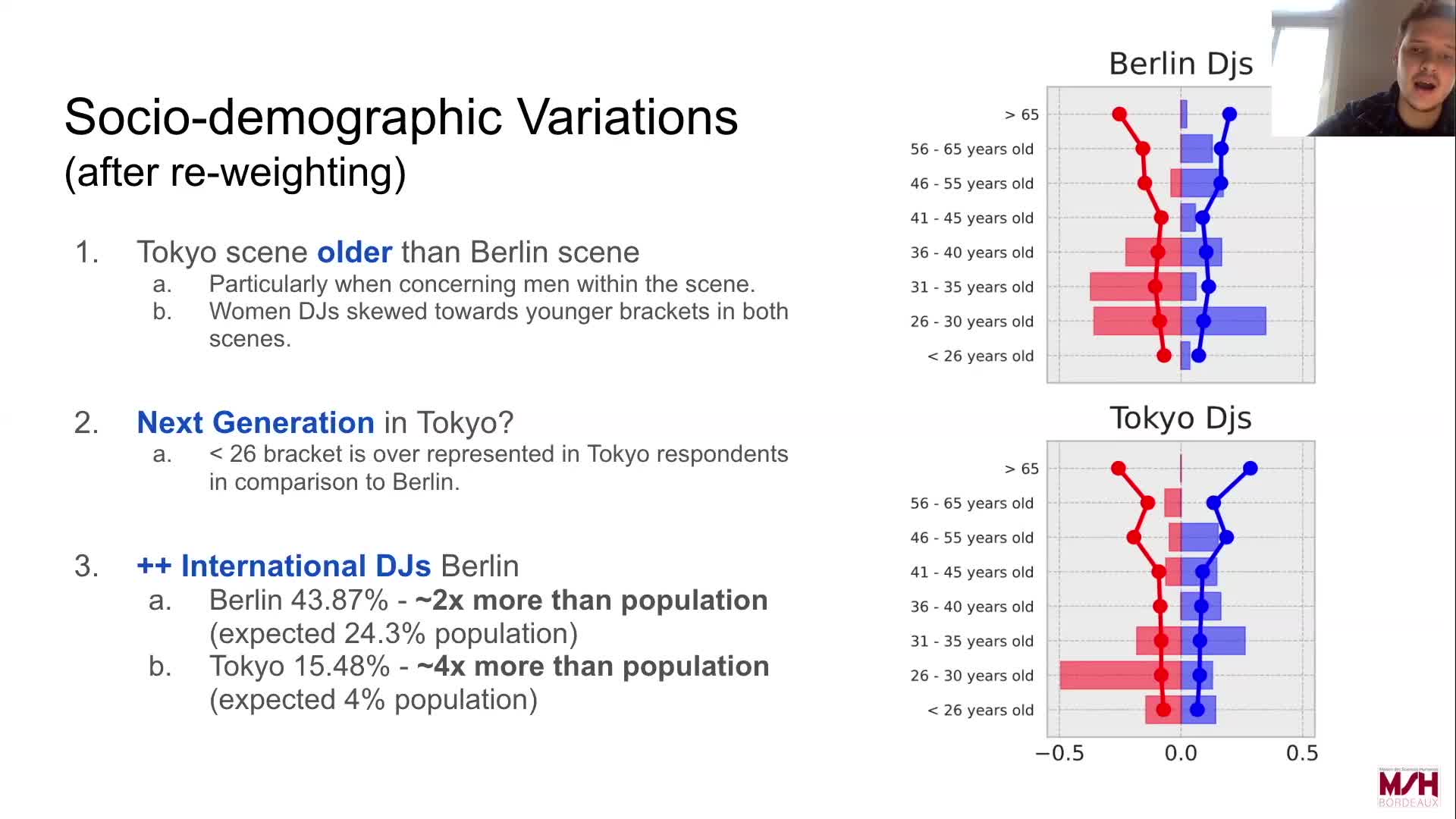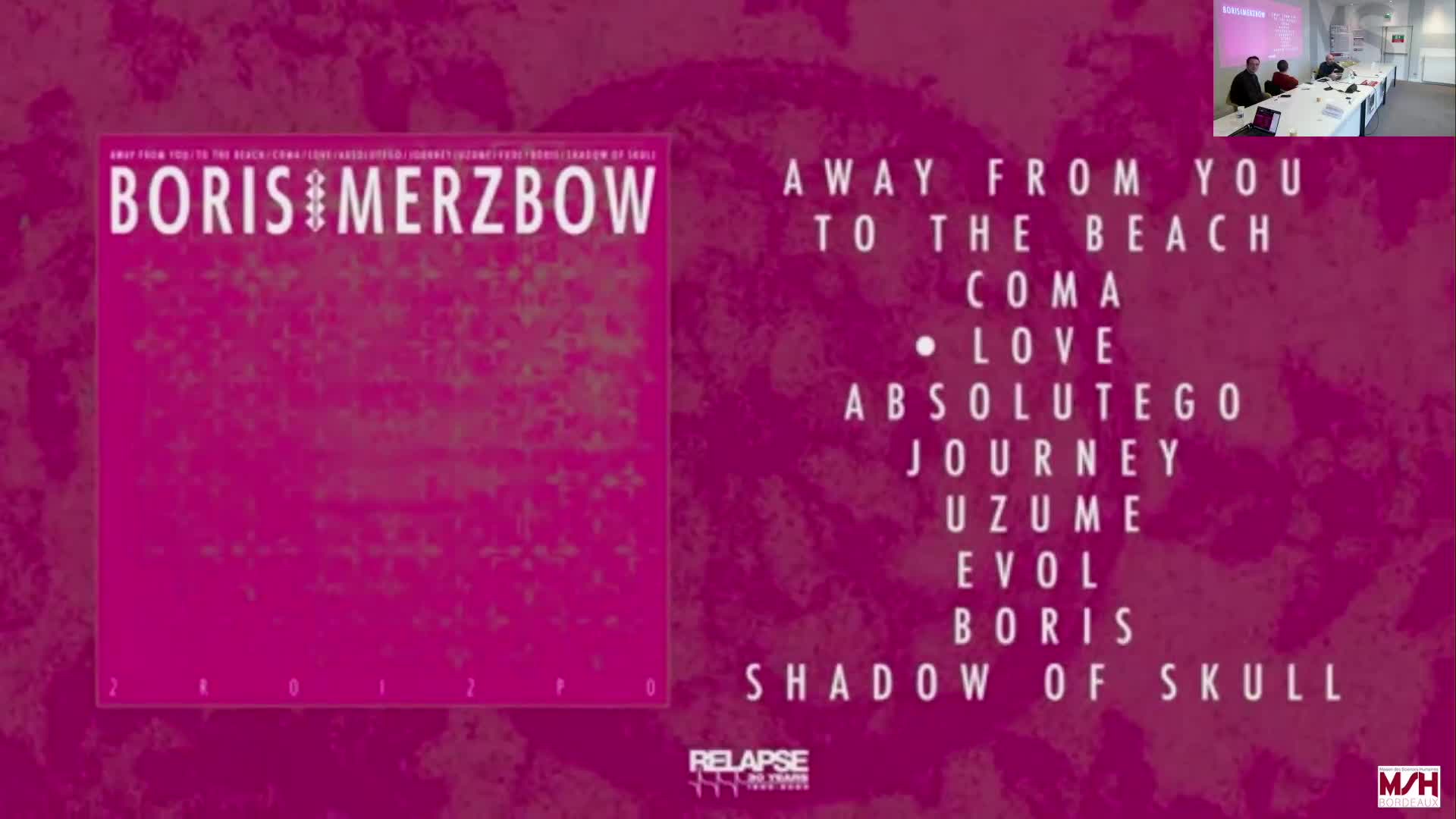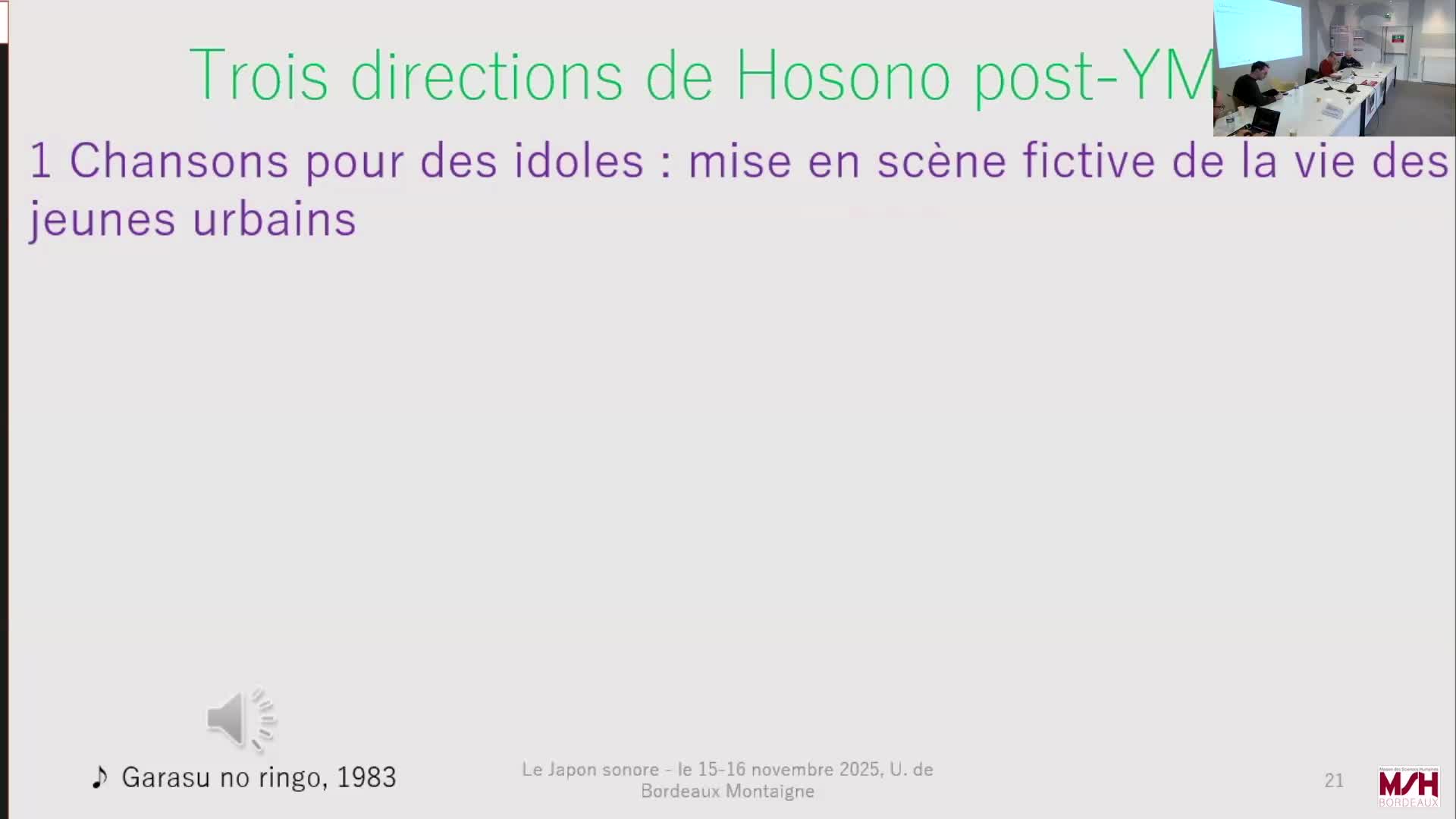Notice
The music of words of Japan: The relationship between human language and music
- document 1 document 2 document 3
- niveau 1 niveau 2 niveau 3
Descriptif
Lidiya Shamova & Satomi Ura, "The music of words of Japan: The relationship between human language and music".
Panel 8 – Language and voice
This study explores the possibilities of communication through music in Japan. The presented data is based on interviews in which the participants revealed their ideas about the relationship between human language and music. Their opinions are divided into groups regarding the number of languages they speak, their ability to play instruments, etc. The interviewees were asked to associate the main linguistic categories – noun (名詞) and verb (動詞) – with the sounds of piano. The Music of Words of Japan is part of an interdisciplinary comparative research that includes English, Spanish, Japanese and Bulgarian. The linguistic data was produced following interviews with 178 people from 23 countries, 54 of which are Japanese. In this research, uni-, bi-, and multidimensional lexical fields (as well as other linguistic categories) were represented through music signs. The findings lay the foundation of an original linguistic model for basic communication named Linguomusicology: The Music of Words (LMoW). LMoW is based on Saussure’s structuralism and the interdisciplinary approaches of Noam Chomsky. It relies on an original contribution to structural semantics provided by Eugenio Coseriu and his notion of Lexematics. The musical part is based on elementary music theory, and inspired by contemporary pianists and composers such as Ludovico Einaudi (Italy), Yiruma (South Korea) and Sofiane Pamart (France). Thus, the idea of this study is to deepen the understanding of the connections between language and music – broadening the possibilities of human communication across cultures.
Colloque "Le Japon sonore : modernité, constructions sociales, rapports de force / Japan and sound: modernity, social constructs and power relations" 14-16 novembre 2024, organisé par Jeremy Corral (UMRU 24140 D2IA, Université Bordeaux Montaigne) et par Chiharu Chûjô (EA 4186-IETT, Université Jean Moulin Lyon 3).
More informations: https://mshbordeaux.hypotheses.org/10930
Thème
Dans la même collection
-
Clôture du colloque / Closing comments
CorralJeremyChujoChiharuColloque "Le Japon sonore : modernité, constructions sociales, rapports de force / Japan and sound: modernity, social constructs and power relations"
-
The ear is a weapon: Soundscapes of racial violence in Tokyo, 1923
Colloque "Le Japon sonore : modernité, constructions sociales, rapports de force / Japan and sound: modernity, social constructs and power relations"
-
Recorded sound and the development of ideological control: Changes in Japanese cinema since 1931
Colloque "Le Japon sonore : modernité, constructions sociales, rapports de force / Japan and sound: modernity, social constructs and power relations"
-
Tomorrow on cassette: Japan’s tape jams in the new media age
Colloque "Le Japon sonore : modernité, constructions sociales, rapports de force / Japan and sound: modernity, social constructs and power relations"
-
Re-sounding Shōwa: Ōtaki Eiichi’s A Long Vacation and nostalgia for 1980s Japan
Colloque "Le Japon sonore : modernité, constructions sociales, rapports de force / Japan and sound: modernity, social constructs and power relations"
-
Masculinities and femininities of Japanese singer-songwriters
Colloque "Le Japon sonore : modernité, constructions sociales, rapports de force / Japan and sound: modernity, social constructs and power relations"
-
Multivocality and the vocaloid fan canon
Colloque "Le Japon sonore : modernité, constructions sociales, rapports de force / Japan and sound: modernity, social constructs and power relations"
-
"Did anyone hear what I said?": Acting through sound in Higuchi Ichiyō’s writing
Colloque "Le Japon sonore : modernité, constructions sociales, rapports de force / Japan and sound: modernity, social constructs and power relations"
-
Gyaru and hip-hop: Shaping a sound-based identity
Colloque "Le Japon sonore : modernité, constructions sociales, rapports de force / Japan and sound: modernity, social constructs and power relations"
-
La musique électronique à Tokyo : une scène (définitivement) analogique ?
PoirouxJérémieColloque "Le Japon sonore : modernité, constructions sociales, rapports de force / Japan and sound: modernity, social constructs and power relations"
-
Save the noise: Supportive acts and works in Japanese noise music in the COVID-19 pandemic
Colloque "Le Japon sonore : modernité, constructions sociales, rapports de force / Japan and sound: modernity, social constructs and power relations"
-
Le tournant de Hosono Haruomi vers la musique ambient dans les années 1980-1990 : concept de « kank…
Colloque "Le Japon sonore : modernité, constructions sociales, rapports de force / Japan and sound: modernity, social constructs and power relations"



